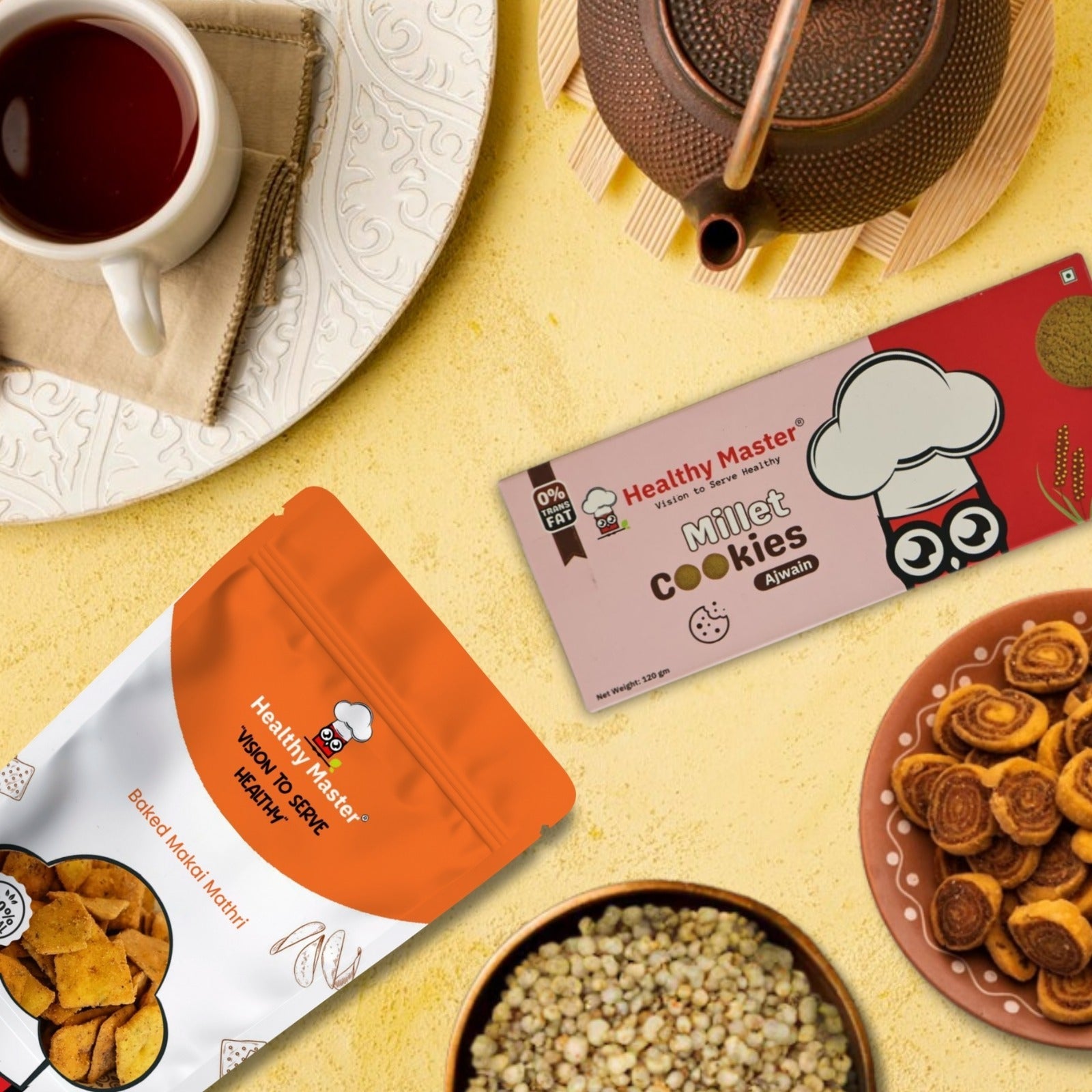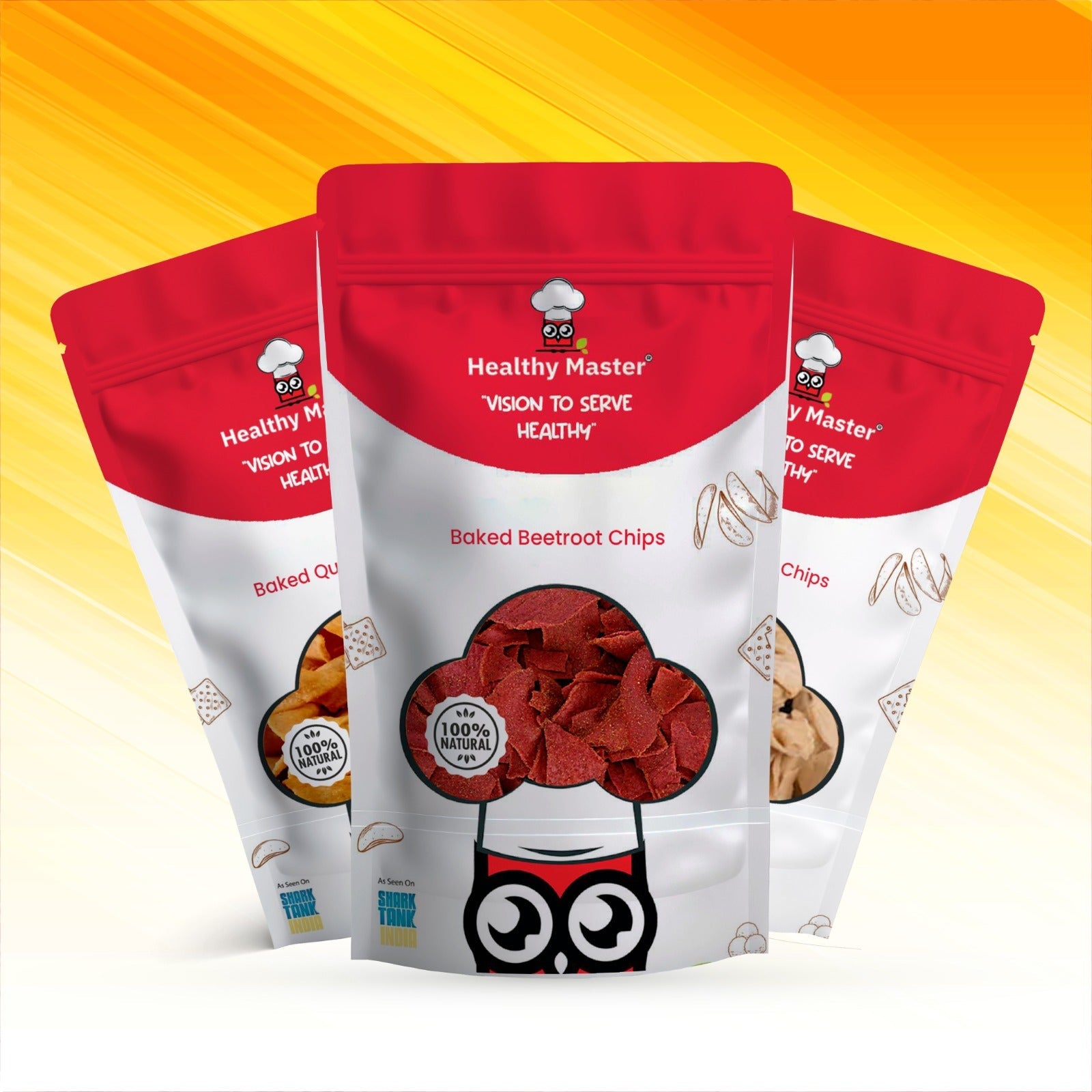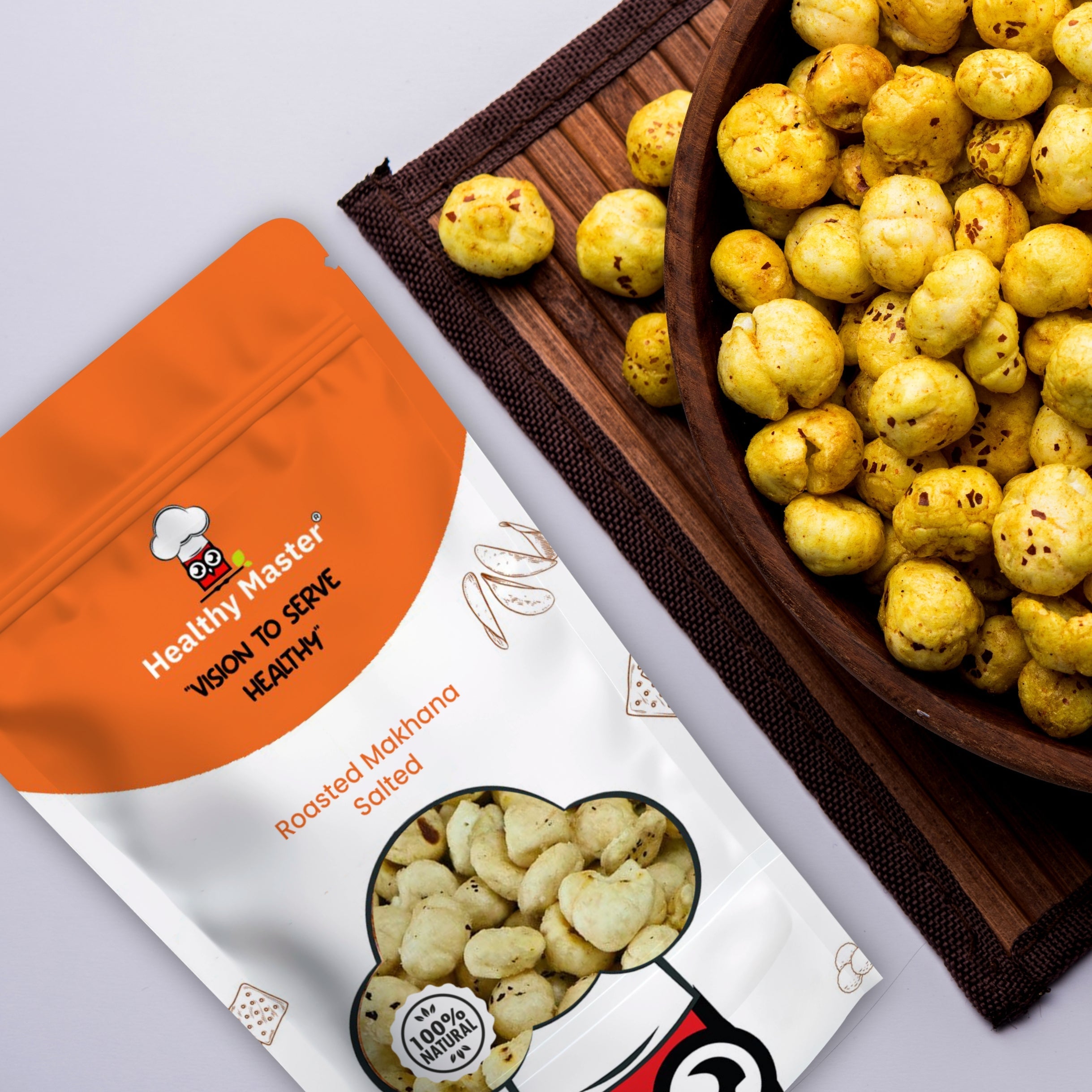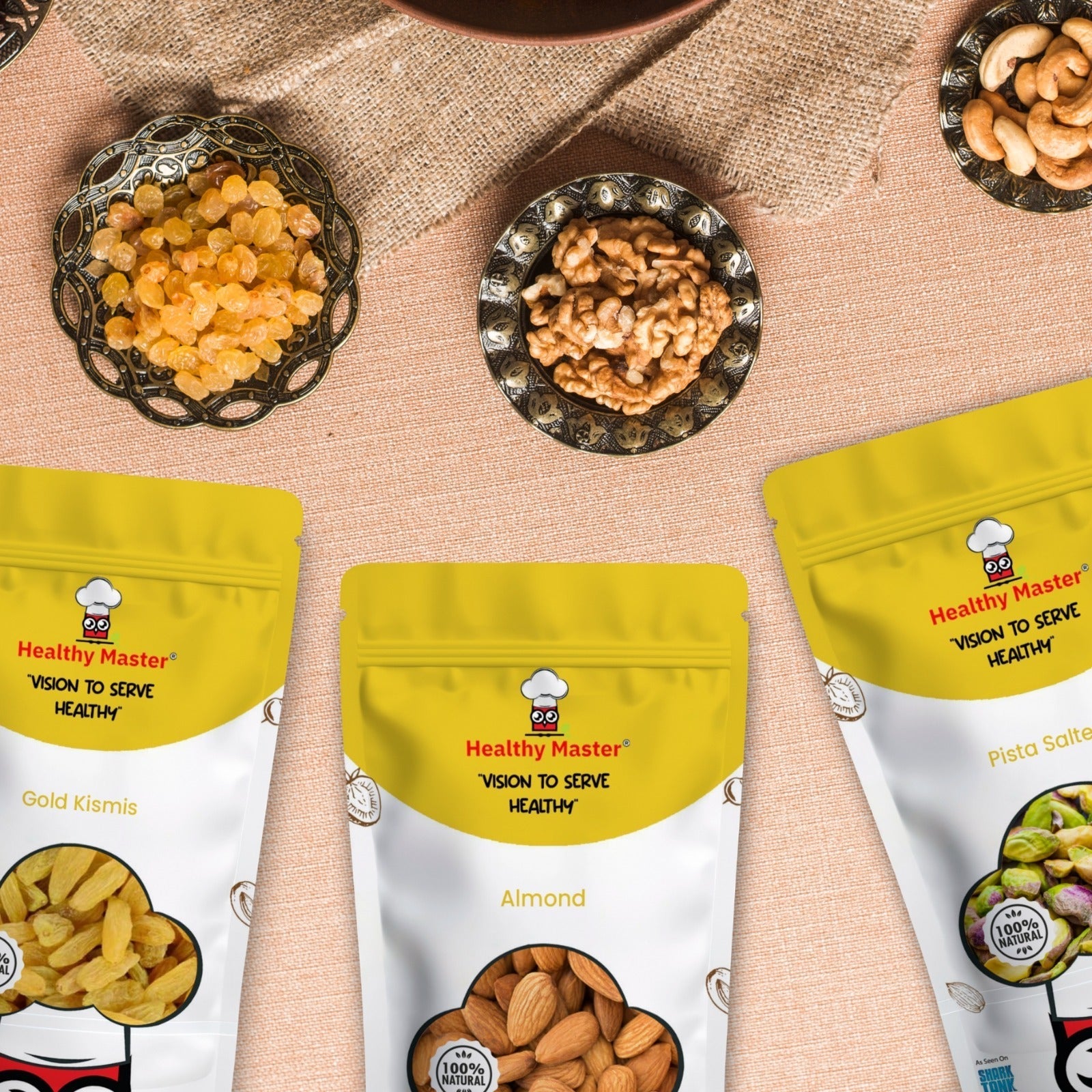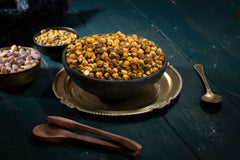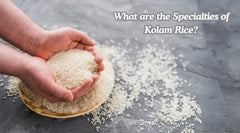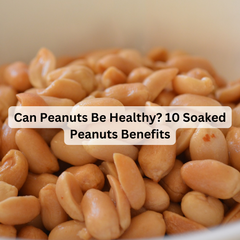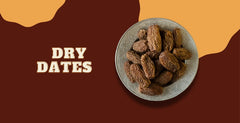Millet nutrition during pregnancy becomes a core of maternal health when mothers expecting a baby understand the impact of what they consume. The pregnancy and the postpartum period demand exceptional nutritional intake, as a woman's body works continuously to nurture new life while maintaining her health. During these months, every meal becomes an opportunity to provide essential building blocks for both mother and baby.
This blog talks about how including millets in prenatal and postnatal diets can change maternal health outcomes. Whether you're planning a pregnancy, expecting, or breastfeeding a baby. It's important to understand the role of millets for making informed choices that support both your health and your baby's health.
Millet Benefits During Pregnancy: Essential Nutrients for Maternal Health
Millets pack an impressive nutritional punch, delivering iron, calcium, fiber, protein, folate, and numerous other vital compounds that address the specific needs of pregnancy.
-
Iron deficiency is among the most prevalent nutritional issues during pregnancy. Women find it difficult to keep up with the higher needs of their increasing blood volume and developing infant. Millets offer a vegetarian source of iron, which, when taken along with foods that contain vitamin C, increases absorption and reduces anemia associated with pregnancy.
-
Calcium needs rise during pregnancy because the bones of the baby start developing. If mom's body is found to lack enough calcium, then her body will tap into her own bone reserves, which may damage her long-term bone health. Some millet types, especially finger millet, have incredibly high amounts of calcium.
-
The fiber content in millets also relieves one of the most common, as well as uncomfortable, side effects of pregnancy, "constipation". As hormonal changes retard the digestion process and the expanding uterus puts pressure on the intestines, most expectant mothers suffer from digestive issues. The insoluble and soluble fiber present in millets ensures healthy bowel movement while nourishing good gut bacteria, forming a basis for improved overall digestive health.
-
Protein needs rise substantially in pregnancy to maintain the intensive growth of fetal tissues, the increase in maternal blood volume, and the formation of the placenta and amniotic sac. Millets provide complete proteins with all the essential amino acids and are thus of special use for vegetarian mothers.
Which Type Of Millet Is Good During Pregnancy?
Understanding the unique properties of different millet varieties gives mothers options to address their specific nutritional needs and preferences. Each type of millet offers different nutritional value, making it beneficial to eat multiple varieties throughout pregnancy.
-
Foxtail Millet: Nourishment for Expectant Mothers
In Chinese household culture, foxtail millet had long been associated with the nutrition of expecting and nursing mothers through warming soups and gruels. This ancient wisdom was well-aligned with contemporary nutritional science, which teaches that foxtail millet offers carbohydrates that are easy to digest without putting a strain on a sensitive digestive system, a condition commonly felt in very early pregnancy.
By its gentle taste and smooth texture, foxtail millers could safely provide food for anyone undergoing morning sickness-they rarely bring about nausea or food aversions. B-vitamins, along with foxtail millet, contribute to energy metabolism and the functioning of the nervous system. Both of these processes become especially important during the rapid cellular development of early pregnancy.
-
Finger Millet: Calcium Powerhouse for Bone Development
Finger millet stands out as nature's calcium supplement, containing levels that rival dairy products. This makes it invaluable for mothers who are lactose intolerant, vegan, or simply seeking to diversify their calcium sources. The calcium in finger millet supports not only fetal bone and tooth development but also helps maintain the mother's bone density during this period of increased nutritional demands.
The grain also provides significant amounts of amino acids, particularly methionine, which supports protein synthesis and liver function. This becomes especially important as the liver works harder during pregnancy to process the increased metabolic demands.
-
Pearl Millet: Iron-Rich Support for Blood Health
Due to its considerable iron content, it is especially useful in the prevention and treatment of pregnancy anemia. Iron-rich pearl millet also supplies vitamin C, which ensures the conditions for absorption that support increasing blood volume during pregnancy.
This variety also supplies large quantities of zinc, which is important for immune function and wound healing. Since the immune system is temporarily changing during pregnancy, sufficient zinc intake helps to maintain good immune responses and promote well-being in fetal development.
-
Kodo Millet: Digestive Comfort and Blood Sugar Balance
Kodo millet offers very good digestive benefits, containing enzymes that actually aid digestion of complex nutrients. For moms with digestive sensitivity, this variety actually nourishes without causing bloating or discomfort. Its prebiotic properties stimulate good gut bacteria, which assist with nutrient absorption and immunity.
The low glycemic index of kodo millet is best suited for mothers with a high risk of gestational diabetes or those wishing to keep their blood sugar levels steady throughout pregnancy.
-
Barnyard Millet: Light and Easily Digestible
Barnyard millet provides the lightest option among millets, making it ideal for mothers with sensitive stomachs or those in their first trimester when nausea and food aversions are common. Being naturally gluten-free, it offers a safe grain option for mothers with celiac disease or gluten sensitivity.
This variety cooks quickly and has a neutral taste that readily absorbs flavors from other ingredients, making it versatile for various meal preparations.
Best Millets for Lactating Mothers: Supporting Milk Production and Recovery
The nutritional impact of millets on women extends significantly into the postpartum period, where the demands of breastfeeding create unique nutritional requirements. The best millets for lactating mothers are which that provide additional calories, protein, and specific micronutrients to support both milk production and their own recovery from childbirth.
Protein requirements increase substantially during lactation, as breast milk production demands high-quality amino acids. Ragi is one of the best millets for lactating mothers, providing complete proteins that supply all essential amino acids necessary for producing nutritionally rich breast milk. The protein in millets also supports tissue repair and recovery from delivery, helping mothers regain strength more effectively.
How Can Expectant Mothers Incorporate Millets Into Their Diet?
Successfully integrating millet nutrition during pregnancy requires practical strategies that accommodate changing taste preferences, time constraints, and varying energy levels throughout different stages of pregnancy. The key lies in starting gradually and finding preparation methods that appeal to individual palates while maximizing nutritional benefits.
Breakfast Integration Strategies
Morning meals provide an excellent opportunity to incorporate millets, as they offer sustained energy that can help combat pregnancy fatigue. Millet porridge, prepared with milk or plant-based alternatives, creates a creamy, satisfying breakfast that can be customized with fruits, nuts, and a seed mix.
Millet dosa, a healthy breakfast preparation popular in South Indian cuisine, combines millet better with a stuffing of vegetables and mild spices. The fermentation process creates beneficial probiotics that support gut health, particularly important during pregnancy when digestive changes are common. The addition of curry leaves and mustard seeds not only enhances flavor but also provides additional micronutrients.
Creative Cooking Approaches
Millet pasta and millet noodles preparations not only enhance digestibility but are also tasty and are a solution to all your cravings.
Millet-based soups provide excellent options for mothers experiencing appetite changes or those seeking lighter meal options. Blending cooked millets with vegetable broths creates nutritious, easily digestible meals that can be seasoned according to individual preferences.
Snack and Sweet Preparations
Millet laddus from Healthy Master offer nutritious snack options that satisfy sweet cravings while providing sustained energy. Our laddus are made up of ingredients like dates, nuts, and almonds, further enhancing nutritional density.
Healthy Master energy bars made with puffed millets and nuts provide convenient on-the-go nutrition for busy expectant mothers. These homemade options avoid the additives and excessive sugars often found in commercial energy bars while providing targeted nutrition.
Are Millets Safe To Eat During Pregnancy?
Addressing safety concerns regarding millet benefits during pregnancy requires examining both the nutritional impact of millets on women and potential considerations that expectant mothers should understand. Overall, millets represent one of the safest grain options available during pregnancy, with centuries of traditional use supporting their safety profile.
The basic safety considerations involve proper preparation and balanced consumption rather than inherent risks from the grains themselves. Unlike some foods that pose specific pregnancy risks, millets fall into the category of generally recognized as safe foods that can be consumed throughout pregnancy and lactation.
Digestive Considerations
Other women might experience digestive changes when first adding millets to their diet, especially if they're used to refined grains. The increase in fiber, though good for avoiding constipation, could be initially followed by mild bloating or gas when added too quickly. Beginning with smaller quantities and incrementing over time lets the digestive system adjust easily.
Adequate cooking methods have a major effect on digestibility. Cooking millets fully until they are soft and easily mashable is the best way to ensure optimal digestibility. Undercooked millets may be more difficult to digest and cause discomfort, especially in pregnancy when digestive sensitivity tends to increase.
Allergenic Potential
Millet allergy is still a relatively uncommon condition in comparison to wheat or corn grain allergies. Still, like any new food introduction to the pregnant woman, it's best to begin with small quantities and be vigilant for any potential reaction. Symptoms of food intolerance could be gastrointestinal upset, cutaneous reaction, or respiratory issues.
Cross-contamination during production is a more prevalent issue than actual millet allergies. Millets manufactured in plants where wheat, nuts, or other allergens are also produced may be at risk for women with certain allergies. A selection of certified gluten-free millets becomes necessary for mothers with celiac disease or gluten intolerance.
Nutritional Impact of Millets on Women
While millets are indeed highly nutritious, they should only complement dietary intake from other food groups and not serve as a complete substitute. In this way, a varied diet gives access to all nutrients needed in pregnancy. Too much of any food item or food group, including this highly nutritious millet, could cause nutritional imbalances.
Oxalates are present in some varieties of millet, and this has to be taken into consideration by women who have a history of kidney stones. It all depends: in the usual amounts of consumption, they pose no concern for the common man, but if you do have such a history, then discuss the consumption of millets with your doctor.
Goitrogenic Compounds
Some millets contain compounds that might interfere with thyroid function if consumed in excessive amounts. However, normal dietary consumption levels do not normally pose a risk to women with healthy thyroid functions. Cooking removes most of these compounds, and consuming millets in a varied diet also lessens any potential concerns.
Women with existing thyroid conditions need to discuss millet consumption with their healthcare provider to ensure they have it set into their specific medical management plans.
Quality and Source Considerations
Choosing high-quality, organic millets when possible reduces exposure to pesticides and other agricultural chemicals. While conventional millets remain safe for consumption, organic options provide additional peace of mind during pregnancy when chemical exposure concerns often increase.
Proper storage of millets prevents rancidity and maintains nutritional quality. Storing millets in airtight containers in cool, dry places preserves their freshness and prevents pest contamination.
Conclusion
Millet nutrition during pregnancy and lactation offers expectant and new mothers a powerful tool for supporting both their own health and their babies' development. These ancient grains provide a remarkable combination of essential nutrients specifically needed during these critical periods, from iron and calcium for healthy blood and bone development to fiber for digestive comfort and protein for tissue growth and repair.
Millets nutrition during pregnancy offers a natural, wholesome way to meet the needs of a mother during pregnancy and early motherhood demands. By incorporating millet or millet snacks into their daily lifestyle, mothers can feel confident they're providing optimal nourishment for both themselves and their babies while enjoying varied, satisfying foods that support their changing bodies throughout this transformative period.
Have you tried millets snacks during your pregnancy journey? If not, then you should definitely try once. Order your millet snack today from Healthy Master!
Frequently Asked Questions
-
Which millet is good for conceiving?
Foxtail millet is beneficial due to its easy digestibility and B-vitamin content, which supports hormonal balance and early fetal development. -
Is millet high in folic acid?
Millets contain moderate levels of folate, important for neural tube development, but they should be consumed alongside other folate-rich foods. -
What is the best time to eat millets?
Millets can be eaten at any meal. Breakfast is ideal for energy, while dinner works well for lighter digestion with proper cooking. -
What not to eat in the first 3 months of pregnancy?
Avoid raw or undercooked meats, high-mercury fish, unpasteurized dairy, excessive caffeine, and highly processed or spicy foods. -
Can I eat millets in the first trimester?
Yes, millets are safe and nutritious in the first trimester. Start with easily digestible types like barnyard or foxtail millet.
 Deal of the week : Trial Snack Box - 18 Wholesome Delights Just at ₹ 899.00
Deal of the week : Trial Snack Box - 18 Wholesome Delights Just at ₹ 899.00


